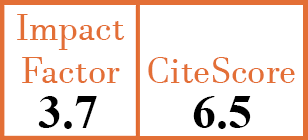Review
Anti-TNF-α induced paradoxical psoriasis in patients with ankylosing spondylitis: a systematic review
I. Sagonas1, G. Iliopoulos2, X. Baraliakos3, D. Daoussis4
- Rheumazentrum Ruhrgebiet-Ruhr-University Bochum, Herne, Germany.
- Department of Rheumatology, Patras University Hospital, University of Patras Medical School, Patras, Greece.
- Rheumazentrum Ruhrgebiet-Ruhr-University Bochum, Herne, Germany.
- Department of Rheumatology, Patras University Hospital, University of Patras Medical School, Patras, Greece. jimdaoussis@hotmail.com, daoussis@upatras.gr
CER16637
2024 Vol.42, N°1
PI 0178, PF 0184
Review
Free to view
(click on article PDF icon to read the article)
PMID: 37812484 [PubMed]
Received: 02/03/2023
Accepted : 02/08/2023
In Press: 05/10/2023
Published: 24/01/2024
Abstract
OBJECTIVES:
The approval of TNF-a inhibitors (TNFi) was a breakthrough in the treatment of ankylosing spondylitis (AS). Although also effective in psoriasis, drug-related adverse events of onset of psoriasiform skin lesions – paradoxical psoriasis (PP) under TNFi have been reported.
METHODS:
We performed an electronic data search in MEDLINE via Pubmed and Cochrane library scientific databases from inception to January 2023, following the PRISMA guidelines. We assessed the distinct characteristics and frequency of risks for PP appearance in AS patients treated with different TNFi.
RESULTS:
PP was found in 0.5–1% of TNFi-treated AS patients and the latency period was 2–11 months. The safest TNFi in terms of PP induction was certolizumab, whereas the one most commonly associated with PP was infliximab.
CONCLUSIONS:
PP is an uncommon adverse reaction to TNFi treatment in AS patients and responds well to drug withdrawal. More large data studies need to be conducted though, to shed light on PP nature and management.



